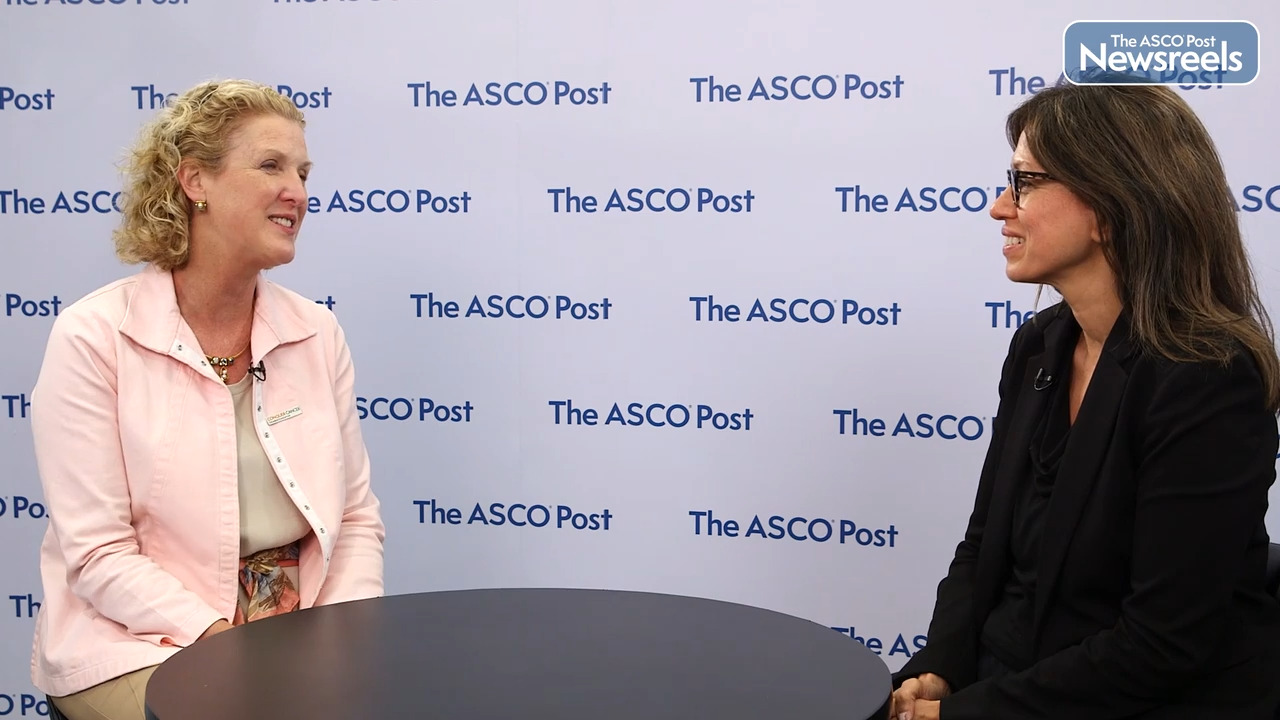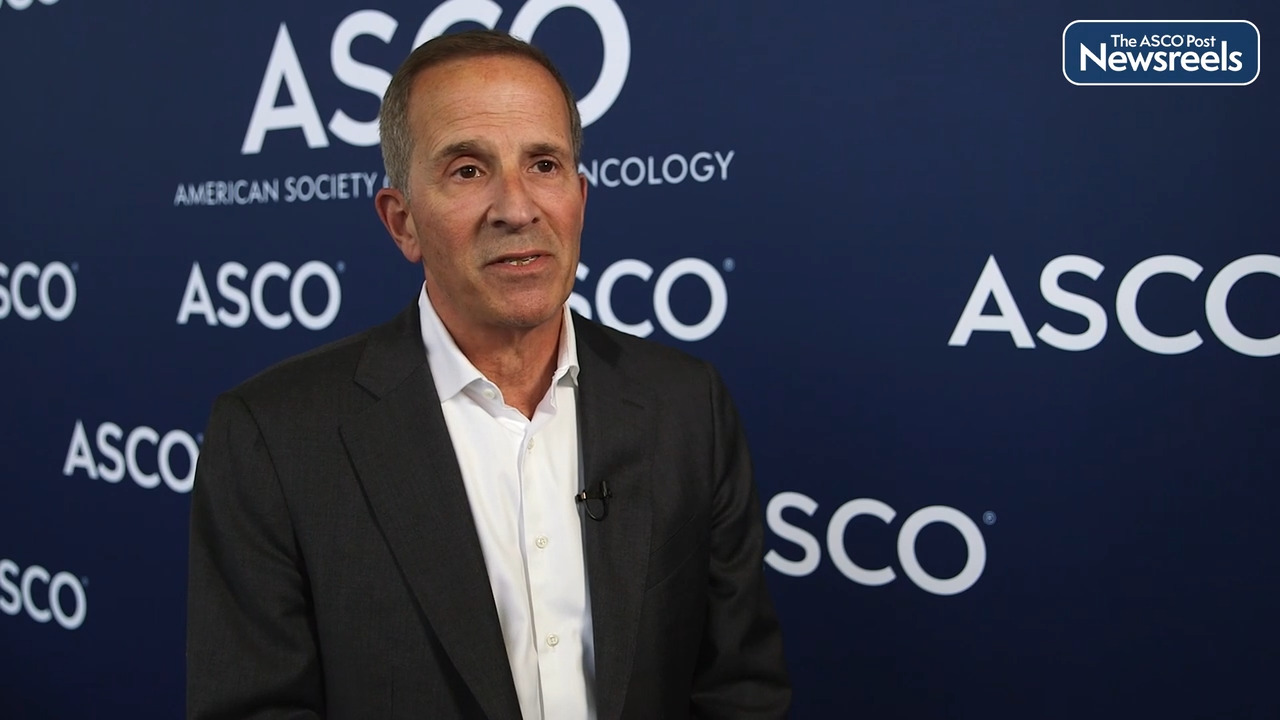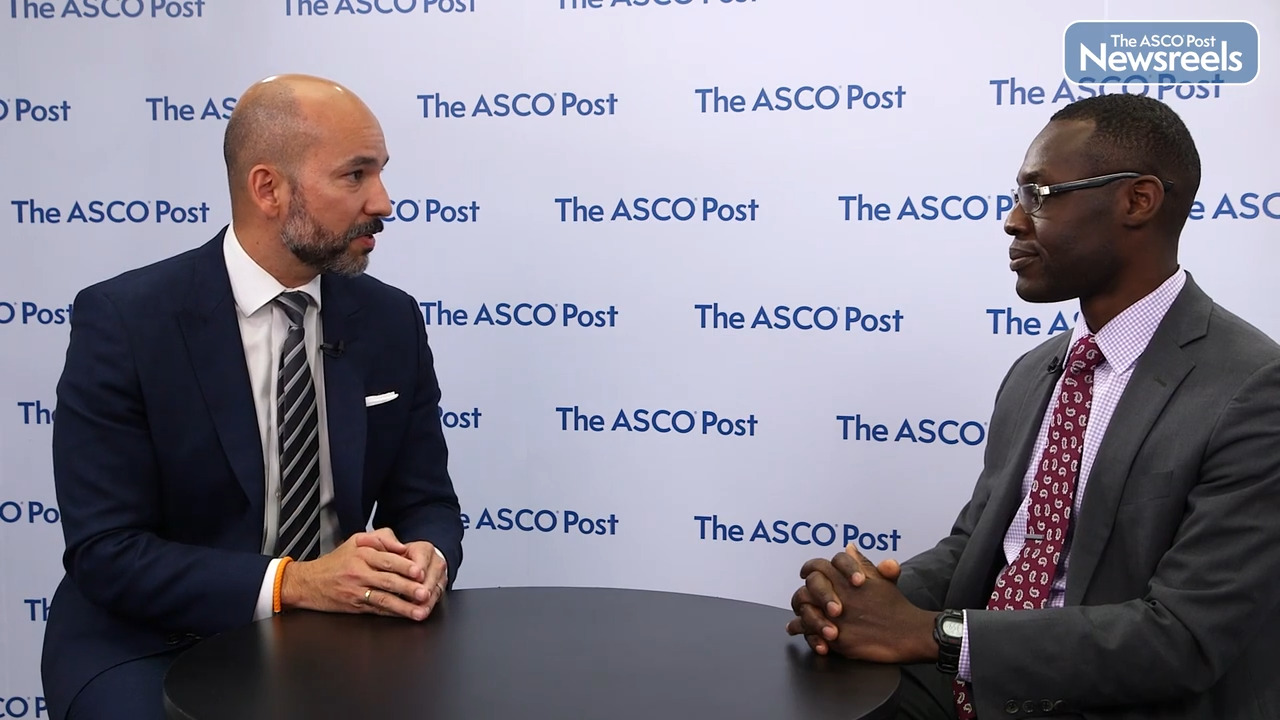Rainer Fietkau, MD, on Pancreatic Cancer: Initial Trial Results on Sequential Chemotherapy and Chemoradiotherapy
2022 ASCO Annual Meeting
Rainer Fietkau, MD, of Germany’s University Hospital Erlangen, discusses phase III findings of the CONKO-007 trial, which examined the role of sequential chemotherapy and chemoradiotherapy administered to patients with nonresectable locally advanced pancreatic cancer following standard-of-care chemotherapy (Abstract 4008).
Transcript
Disclaimer: This video transcript has not been proofread or edited and may contain errors.
So CONKO-007 study compared in a randomized Phase III trial the effect of chemoradiotherapy or chemotherapy following induction chemotherapy. We included the patients with nonresectable locally advanced pancreatic cancer. Following three months of induction therapy, restaging was performed and patients with new detected metastasis or insufficient dosage of chemotherapy were included. 525 patients were included. 366 patients were randomized.
Important, we had the following feature of the study. Nonresectability was confirmed a panel of five experienced surgeons. This was checked again following the whole therapy and surgery was recommended if an R0 resection seems to be possible. And, we succeeded, that in both arms about 36% of the patients were then treated with surgery. We think that this high number was due to the fact that surgery was often recommended in the second surgical evaluation.
The primary end point, the R0 resection, was evaluated in the 122 patients with resection. Following chemoradiotherapy, more R0 resections were possible. The rate of R1 resections was significantly lower. The OS rate of CRM negative tumor was significantly higher. Furthermore, we found significantly more complete remissions following chemoradiotherapy.
In a second analysis, for all randomized patients nearly all statistically different parameters remained significant. Complete remission rate, R1 resection rate, CRM positive or negative status, all in favor of chemoradiotherapy. Only the R0 resection rate was no more statistically different, but this did not translate into a better overall progression free survival or overall survival. But what is very important, is the effect of additional surgery. None of the patients without surgery survived five years, but 17.5% with additional surgery. Of course, these are no randomized data and are biased by patient selection, but it may show the important role of surgery of these patients.
Moreover, the best survival data we achieved for CRM or R0 resected patients was a five year survival rate of 35 to 27%. We found some hints that chemoradiotherapy improves this long term survival of surgically treated patients. Five year survival following chemoradiotherapy is 24% compared to 20% following chemotherapy alone. Of course, these results are not statistically different but may be a hint how the better R0 resection rate may potentially translate into a better survival.
In conclusion, we found that additional chemoradiotherapy to chemotherapy improves significantly the R0 resected rate, in surgically treated group but not in all randomized patients. Additional chemoradiotherapy improves the rate of R0 CRM negative resected significantly and very importantly, 36% of all randomized patients can be treated additionally with surgery, the five year survival of 17.5% compared to 0% without surgery. Overall this concept of induction chemotherapy, additional chemoradiotherapy and surgery, is visible, with a five year survival rate of 9.6% and selects a favorable subgroup of patients that has an impressive long term survival rate of up to 26%.
And the next steps in our analysis will be a further evaluation of prognostic parameters to select better patients who will benefit most from surgery and chemoradiotherapy.
Related Videos
The ASCO Post Staff
Lisa A. Carey, MD, of the University of North Carolina Lineberger Comprehensive Cancer Center, and Shanu Modi, MD, of Memorial Sloan Kettering Cancer Center, discuss the phase III findings from the DESTINY-Breast04 trial, which compared fam-trastuzumab deruxtecan-nxki (T-DXd) vs treatment of physician’s choice (TPC) in patients with HER2-low unresectable and/or metastatic breast cancer. T-DXd is the first HER2-targeted therapy to demonstrate clinically meaningful improvement in progression-free and overall survival compared with TPC in this patient population, regardless of hormone receptor or immunohistochemistry status or prior use of CDK4/6 inhibitors (Abstract LBA3).
The ASCO Post Staff
Neal D. Shore, MD, of the Carolina Urologic Research Center, discusses his study findings, showing that germline genetic testing influenced care for patients with prostate cancer. Men whose genetic test was positive for a pathogenic germline variant received more recommendations for changes to follow-up and treatment, and for testing and counseling of relatives, than did patients with negative or uncertain test results (Abstract 10500).
The ASCO Post Staff
Alfredo Carrato, MD, PhD, of Alcala de Henares University in Spain, discusses phase II results from the SEQUENCE trial, which showed that nab-paclitaxel, gemcitabine, and modified FOLFOX showed significantly higher clinical activity than the standard nab-paclitaxel and gemcitabine in the first-line setting of patients with untreated metastatic pancreatic ductal adenocarcinoma (Abstract 4022).
The ASCO Post Staff
Eunice S. Wang, MD, of Roswell Park Comprehensive Cancer Center, discusses long-term phase II findings of a trial evaluating crenolanib plus chemotherapy in newly diagnosed adults with FLT3-mutant acute myeloid leukemia. The study showed a composite complete remission rate of 86%. With a median follow-up of 45 months, median overall survival has not been reached. A phase III trial is ongoing (Abstract 7007).
The ASCO Post Staff
Gilberto de Lima Lopes, Jr, MD, MBA, of Sylvester Comprehensive Cancer Center at the University of Miami, and Oladimeji Akinboro, MD, MPH, of the U.S. Food and Drug Administration (FDA), discuss a data analysis, which suggests that most subgroups of patients with advanced non–small cell lung cancer with a PD-L1 score of 50% or greater who are receiving FDA-approved chemotherapy/immunotherapy regimens may have overall survival outcomes comparable to or better than immunotherapy-alone regimens (Abstract 9000).





